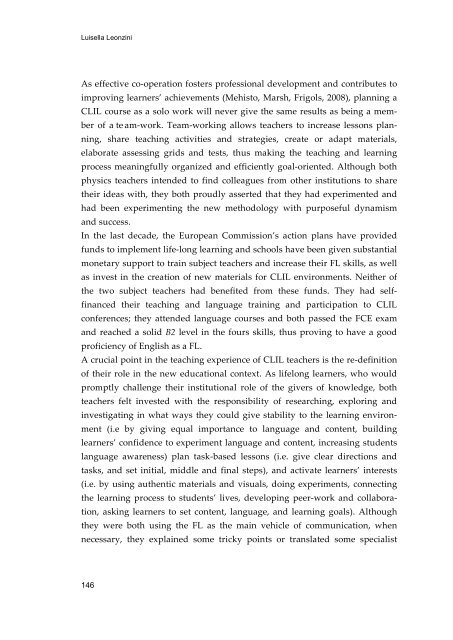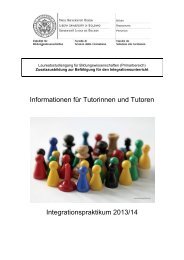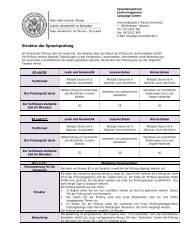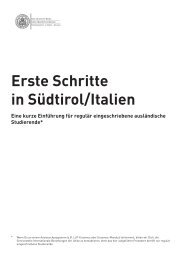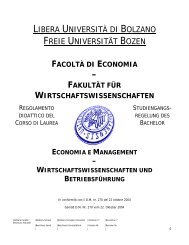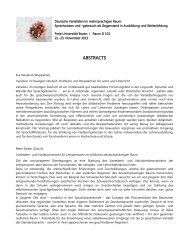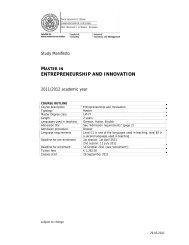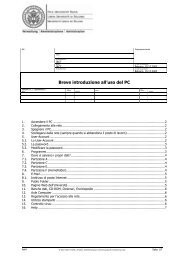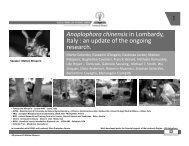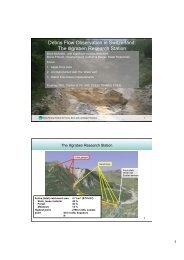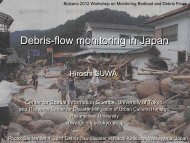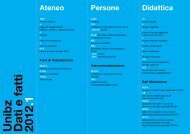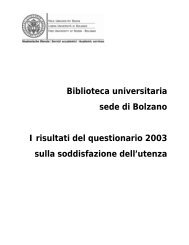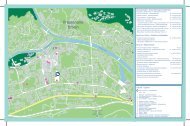Multilinguismo, CLIL e innovazione didattica - Libera Università di ...
Multilinguismo, CLIL e innovazione didattica - Libera Università di ...
Multilinguismo, CLIL e innovazione didattica - Libera Università di ...
You also want an ePaper? Increase the reach of your titles
YUMPU automatically turns print PDFs into web optimized ePapers that Google loves.
Luisella Leonzini<br />
As effective co-operation fosters professional development and contributes to<br />
improving learners’ achievements (Mehisto, Marsh, Frigols, 2008), planning a<br />
<strong>CLIL</strong> course as a solo work will never give the same results as being a member<br />
of a te am-work. Team-working allows teachers to increase lessons planning,<br />
share teaching activities and strategies, create or adapt materials,<br />
elaborate assessing grids and tests, thus making the teaching and learning<br />
process meaningfully organized and efficiently goal-oriented. Although both<br />
physics teachers intended to find colleagues from other institutions to share<br />
their ideas with, they both proudly asserted that they had experimented and<br />
had been experimenting the new methodology with purposeful dynamism<br />
and success.<br />
In the last decade, the European Commission’s action plans have provided<br />
funds to implement life-long learning and schools have been given substantial<br />
monetary support to train subject teachers and increase their FL skills, as well<br />
as invest in the creation of new materials for <strong>CLIL</strong> environments. Neither of<br />
the two subject teachers had benefited from these funds. They had selffinanced<br />
their teaching and language training and participation to <strong>CLIL</strong><br />
conferences; they attended language courses and both passed the FCE exam<br />
and reached a solid B2 level in the fours skills, thus proving to have a good<br />
proficiency of English as a FL.<br />
A crucial point in the teaching experience of <strong>CLIL</strong> teachers is the re-definition<br />
of their role in the new educational context. As lifelong learners, who would<br />
promptly challenge their institutional role of the givers of knowledge, both<br />
teachers felt invested with the responsibility of researching, exploring and<br />
investigating in what ways they could give stability to the learning environment<br />
(i.e by giving equal importance to language and content, buil<strong>di</strong>ng<br />
learners’ confidence to experiment language and content, increasing students<br />
language awareness) plan task-based lessons (i.e. give clear <strong>di</strong>rections and<br />
tasks, and set initial, middle and final steps), and activate learners’ interests<br />
(i.e. by using authentic materials and visuals, doing experiments, connecting<br />
the learning process to students’ lives, developing peer-work and collaboration,<br />
asking learners to set content, language, and learning goals). Although<br />
they were both using the FL as the main vehicle of communication, when<br />
necessary, they explained some tricky points or translated some specialist<br />
146


